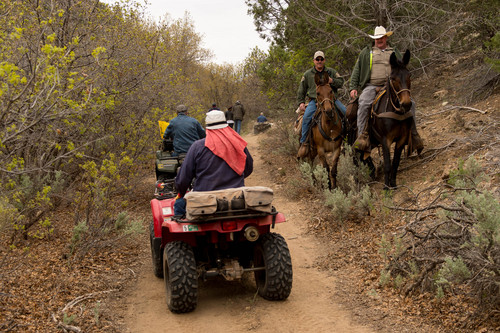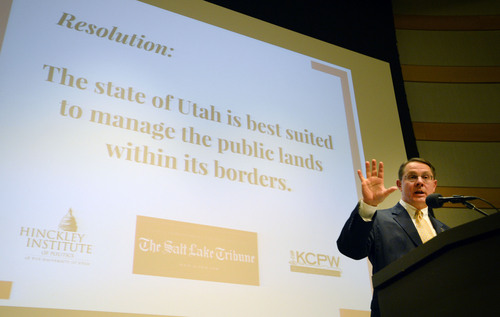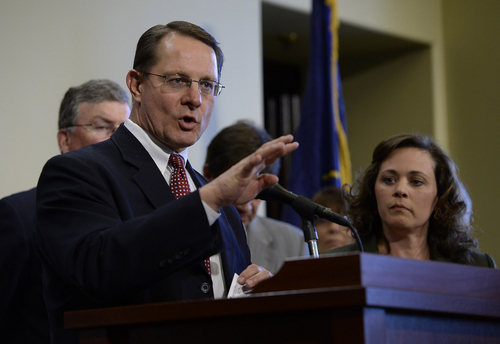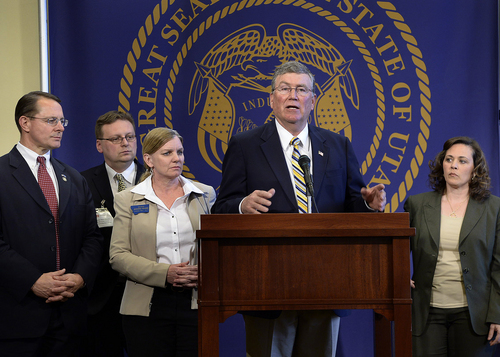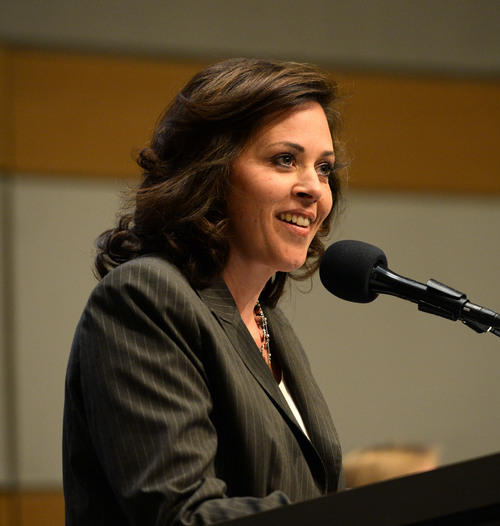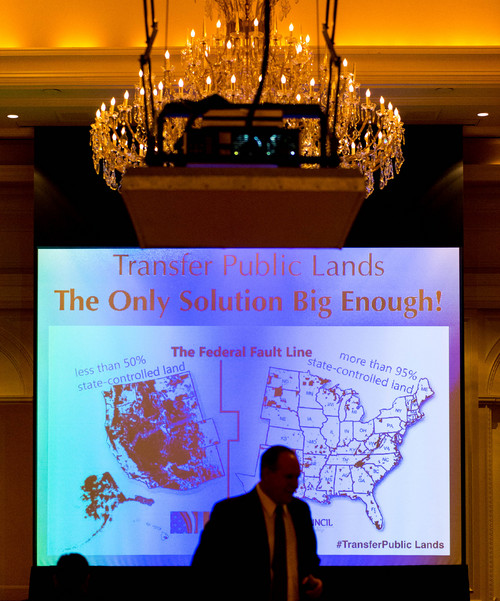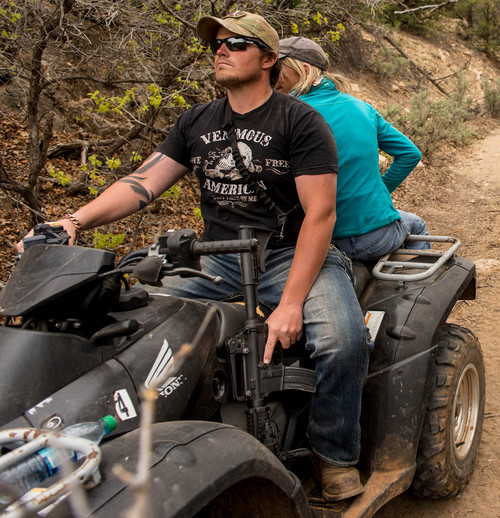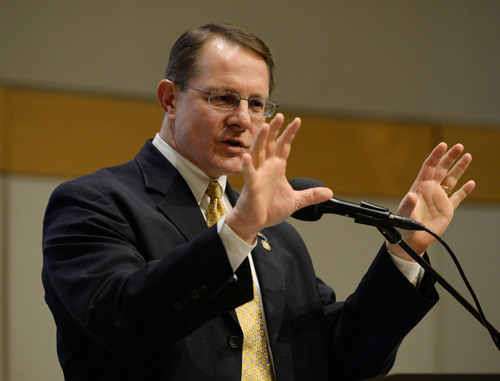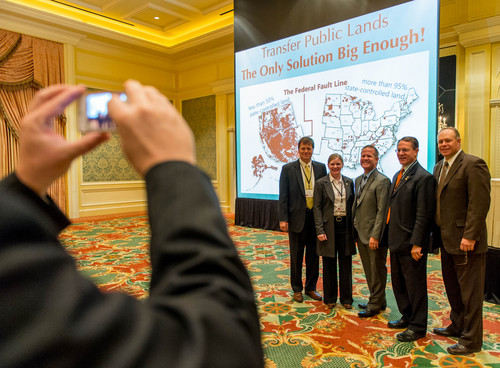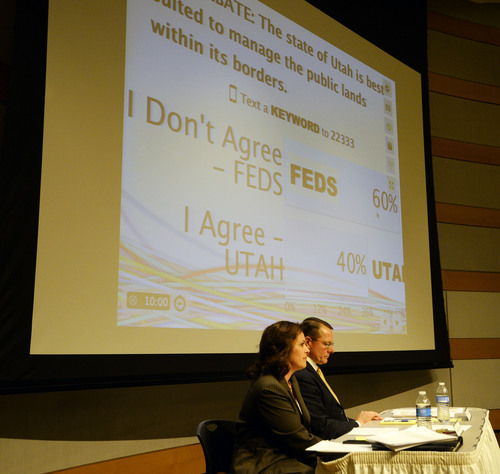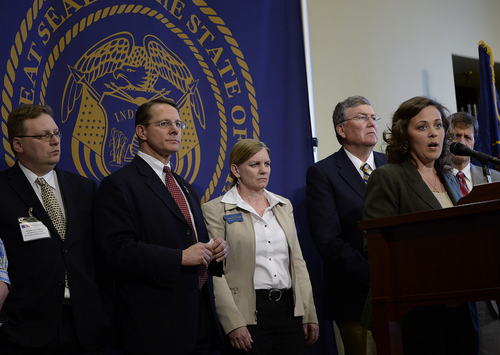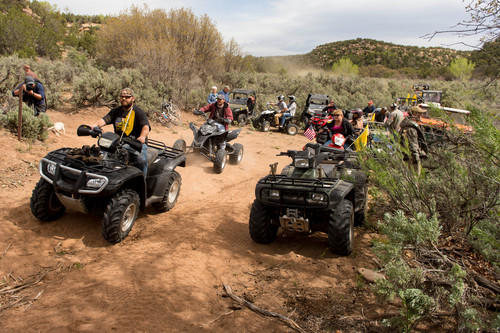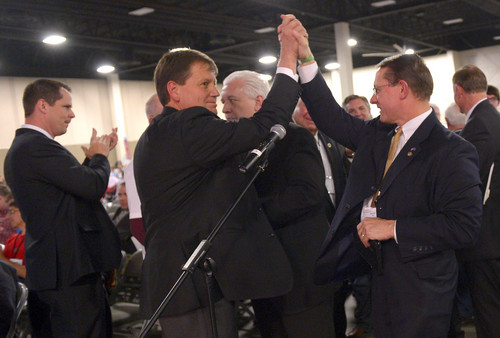This is an archived article that was published on sltrib.com in 2014, and information in the article may be outdated. It is provided only for personal research purposes and may not be reprinted.
It's a big idea — trying to get the federal government to relinquish hundreds of millions of acres of public land to states. And for Utah Rep. Ken Ivory, it's become an all-consuming crusade. It dominates his work as a part-time legislator and has taken over his private life, too. It's how he makes his living.
Supporters say this is the kind of focus and energy the issue demands — and they praise Ivory and his backers for making strides.
But opponents question the ethics of a lawmaker becoming a one-issue advocate whose livelihood is squarely hitched to his cause. Even some conservatives are grumbling behind the scenes, saying the nonprofit organization he has created thrives on fueling controversy to marshal support and raise money — a criticism they usually aim at environmental groups.
Ivory, an attorney, has mostly boarded up his legal practice and has traveled the country, speaking to county commissions, school boards, tea-party groups, television hosts, state legislators and members of Congress advocating for his goal.
He said support for the effort is swelling as he travels three weeks a month taking his message around the country.
"There's a growing frustration all over the West that we can and should [control our lands] and our very founding principles were established because property and self-governance matter," Ivory, R-West Jordan, said. "When you get away from those principles, you get bad results, like forests burning down and killing thousands of animals and spoiling watersheds."
Ivory's activities have raised the question of whether his advocacy crosses the line into lobbying, which he has not registered to do.
Supporters in neighboring states, though, say Ivory has been invaluable in rallying county and state governments to pressure the federal government to give up the lands, and they credit him with a mushrooming movement across the region.
"I'm hoping to God that all the states — it's not going to be Nevada or Utah or Idaho, but all the states — go back to Washington and say: 'Here's the problem we're seeing. Here's the waste of money and mismanagement that's out there, let the states control a lot of this stuff,' " said Nevada Assemblyman John Ellison, who sponsored a bill in the Silver State to study whether it could take over public lands.
Ivory, Ellison said, provided a mountain of information, guidance and background based on Utah's experience for that project that helped win over skeptical legislators.
—
Getting organized • Ivory created the American Lands Council, a tax-exempt nonprofit, in 2012, along with Elko, Nev., County Commissioner Demar Dahl at a brief meeting at Salt Lake City International Airport.
According to its mission statement, the group "channels the cooperative efforts of state and local governments, businesses, organizations, and individuals to secure and defend local control of land access, land use, and land ownership through: I. Education; II. Political Persuasion; III. Legislation (Local, State and National); IV. Litigation."
Ivory has now signed up five dozen corporate, government and individual members, with memberships ranging from a few hundred dollars to Gold Level status costing $25,000 each. Four members, including commissions from two Utah counties — Kane and Washington — bought in at the $25,000 level, with more than 50 more joining at lower tiers.
"People are recognizing the need to go on offense and solve a problem," Ivory said, "so we're very gratified that counties and individuals and businesses around the West and the nation have wanted to support and be part of what we're doing."
In 2012 — the only year for which the Lands Council has filed its federal tax return so far — Ivory reported the group had raised more than $123,000. He drew a $40,000 salary from the organization — a small amount, Ivory said, considering the 60 to 70 hours a week he works on the issue.
The group has yet to file its 2013 tax return, but based on the member listing on the council's website, it appears to have brought in roughly $300,000 or more. Ivory's wife now draws a yet-undisclosed salary from the group, as well, as its communications director.
David Irvine, a former legislator and attorney for Utahns for Ethical Government, says while Utah's laws are loose enough that Ivory's role with the Lands Council doesn't technically create a conflict of interest, getting paid to advocate for a particular issue raises questions about whether his allegiance is to his constituents or his organization.
"While they can define all this as technically excusable as they wish, it's an inescapable fact that, if you're a lobbyist-legislator, it is an inherent conflict of interest," Irvine said, "and can only be said not to impair independent judgment if we suspend all rational human experience."
—
Gathering steam • Supporters say Ivory and his group are doing valuable work and those donating funds are getting a bargain.
"They're getting more than 100 percent of their money's worth," Ellison said. "They're probably getting 150 percent."
Ivory touts a string of successes in the two years since Gov. Gary Herbert signed Utah's first-of-its-kind land-transfer law — which demands Congress turn over tens of millions of federal acres in Utah by December 2014. If it does not, the state could go to court demanding the transfer.
Five states have since passed laws targeting the transfer of lands (though none has gone as far as Utah); the Republican National Committee unanimously adopted a resolution supporting the transfer of public lands to the states; and various other GOP groups have done the same.
Amid the armed standoff with federal officers at Cliven Bundy's Nevada ranch last month, Ivory did a series of cable-news interviews about the issue, at the same time avoiding tying the issue too closely to the renegade rancher, calling it "Bigger than Bundy."
"He was put in a very untenable situation," said Ivory, adding it was an overreaction where "in a purely civil matter you have the federal government coming in in the most egregious, uncivilized manner with machine guns and attack dogs and Tasers."
Last month, legislators from around the West gathered at the Utah Capitol to discuss efforts to stake claim to the federal land and form an interstate commission to lay the groundwork for the land transfer.
House Speaker Becky Lockhart, who has taken a much more prominent role in the lands issues in recent months, said the gathering of state leaders was an important step.
"I am more encouraged [about the prospects for success] and what I like and what I feel very positive about is lots of legislators, county commissioners and other officeholders and policymakers from the Western states are very much interested in this issue," the Provo Republican said. "We've known that is always a critical part of this movement, which is to have Utah not be alone."
However, the "political persuasion" and advocacy for legislation central to the American Land Council's mission raise questions about whether the group is technically lobbying and whether Ivory should register as a lobbyist.
—
Lobbying? • Utah law grants an exemption for officers of organizations, but other states don't have the same loophole.
In Nevada, where the American Lands Council has been especially active, the secretary of state's website says an individual must register as a lobbyist if he or she is "paid to represent an entity, group or employer to lobby," or if he or she receives "a salary from an employer and will lobby for their interests or benefit."
In Arizona, a person must register as a lobbyist if he or she plans to attempt to "influence the passage or defeat of any legislation … by directly communicating with any legislator."
Idaho defines a lobbyist as: "Anyone who attempts through contacts with … members of the legislature or legislative committees or an executive official, to influence the approval, modification or rejection of any legislation."
Montana and Wyoming have similar definitions in their laws.
Ivory says he's not a lobbyist, because he provides information about the land-transfer issues generally, and doesn't urge lawmakers to pass or defeat specific bills.
"There's a difference between advocating for a principle and advocating for specific legislation pending before a body," Ivory said. "We're just trying to teach correct principles and they're going to do what they do in their state."
Martin Dupalo, a retired political science professor from the University of Nevada-Las Vegas who has studied the state's ethics laws extensively, said, based on the group's stated mission of advocating for legislation and the activities in Nevada, it appears Ivory should register as a lobbyist.
Only if he had no contact with any legislators while the bill was in the pipeline might Ivory be able to claim not to have lobbied.
"Nuance or no nuance," Dupalo said, "parsing words does not serve the general public but clearly shields politicians and political activity from the general public view."
For his part, Ivory plans to continue his taxing travel and lecture series — he's nearly booked through year's end — and believes that ultimately his crusade must come to fruition.
"Change is inevitable," he said. "Now what you're seeing is legislative leaders, representatives of the people in our constitutional duty … coming together and saying, 'OK, this is clearly out of balance. It clearly undermines the founding principles of our nation.' "
gehrke@sltrib.com Twitter: @RobertGehrke


